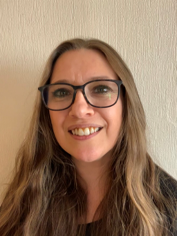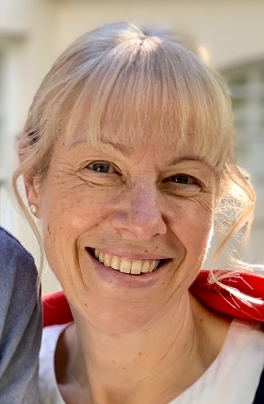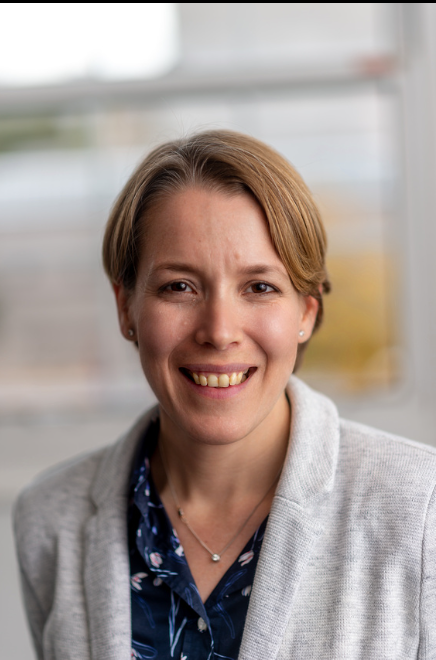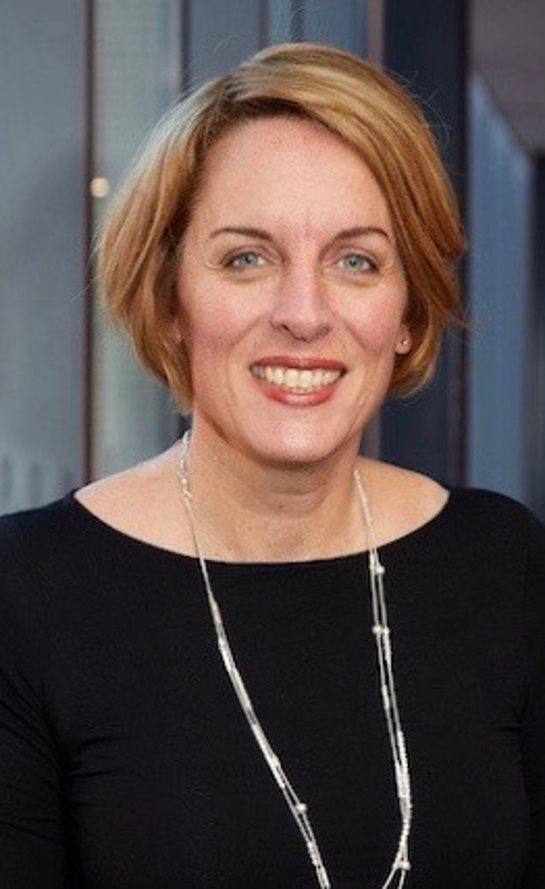Here you can read more about our associate collective members.
Clare Brooks
Clare Brooks is Professor of Education and Pro-Director, Education at UCL Institute of Education in London. Her background is in geography education: as a former geography teacher in East London, then as a geography educator developing both initial and continuing teacher education programmes at UCL Institute of Education. Her research has been in the area of geography teacher subject identity and subject expertise and more recently on high quality teacher education at scale. Until recently she was Co-Chair of the International Geographical Union Commission for Geography Education, and editor of their book series, and Chair for the UK-based Geography Education Research Collective.

Academic profile
https://iris.ucl.ac.uk/iris/browse/profile?upi=CBROO98
ORCID iD
Recent publications
Brooks, C. (2021) Initial Teacher Education at Scale Quality Conundrums. Routledge.
Gao, J., Xu, Y., Kitto, E., Bradford, H., & Brooks, C. (2022) Promoting culturally-sensitive teacher agency in Chinese kindergarten teachers: an integrated learning approach. Early Years. doi:10.1080/09575146.2021.1901661
Brooks, C. (2021) Research capacity in initial teacher education: trends in joining the ‘village’. Teaching Education. doi:10.1080/10476210.2020.1862077
Brooks, C. (2021). Teacher identity, professional practice and online social spaces. In N. Walshe and G. Healy (eds), Geography Education in the Digital World: Linking Theory and Practice. London: Routledge, pp.7-16.
Emma Till
Emma is Senior Lecturer in Education at the University of Winchester, UK. Before joining the university, she worked as a classroom teacher and senior leader in a range of primary schools across South-East England and spent time teaching in South-East Asia. Emma’s research interests are primary teacher identity, geography education and phenomenology. She was awarded her PhD in March 2018 for her thesis entitled ‘Being a geographer: Towards an understanding of Primary Teachers’ Constructs of Subject Specific Identity.’ Emma has worked as a member of the Geography Education Research Collective (GEReCO) and the UK Sub-Committee of the International Geographical Union- Commission for Geography Education (IGU-CGE),to promote geography education both across the UK and internationally. She reviews papers for IRGEE and helped organise the 2015 and 2019 IGU Symposiums in London. She has previously attended and presented her work at IGU conferences in London, Freiburg, Cologne, Singapore, China, Lisbon and Quebec City.
Recent publications
Fargher, M., Mitchell, D. and Till, E. eds (forthcoming, 2021) Recontextualising Geography in Education. London: Springer.
Till, E. (2018). Being a geographer: Towards an understanding of primary teachers’ constructs of subject-specific identity (Unpublished doctoral dissertation). University of Winchester, Winchester, UK.
Till, E. (2020) Fused identities: an exploration of primary teachers’ geographical identities, International Research in Geographical and Environmental Education, 29:1, 74-88, DOI: 10.1080/10382046.2019.1657677

Academic Profile
ORCID iD
Graham Butt
Grahamis Emeritus Professor in Education, and previously Director of Research, at the School of Education, Oxford Brookes University. He is a founding member of the Geography Education Research Collective (GEReCo). Graham’s research is predominantly in the field of geography education, although he has also published on assessment, teacher workload, and modernisation of the teaching workforce. His books include Modernising Schools (2007, with Helen Gunter), Lesson Planning (3rd edition) (2008), Making Assessment Matter (2010) and, as editor, Geography, Education and the Future (2011), MasterClass in Geography Education (2015) and The Power of Geographical Thinking (2017) (with Clare Brooks and Mary Fargher). His latest monograph, published in 2020, is: Geography Education Research in the UK: retrospect and prospect. The UK Case, Within the Global Context.
Recent publications
Alexander, P Lowenthal, JL, and Butt, G (2020) “Fuck It, Shit Happens (FISH)”: A Social Generations Approach to Understanding Young People’s Imaginings of Life After School in 2016-2017 Journal of Youth Studies 23 (1), 109-126. doi.org/10.1080/13676261.2019.1704406
Butt, G (2020) Geography Education Research in the UK: retrospect and prospect. The UK Case, within the Global Context. Cham: Springer.
Lowenthal, JL, Alexander, P and Butt, G (2019) Fateful Aspects of Aspiration among Graduates in New York and Los Angeles. International Studies in Sociology of Education. 28, (3-4), 345-361. doi.org/10.1080/09620214.2019.1627898
Greenway, K, Butt, G and Walthall, H (2019) What is a Theory-Practice Gap? An exploration of the concept. Nurse Education in Practice. 34,.1-6
Eleanor Rawling
Eleanor Rawling, MBE, is a former GA President and currently an Honorary Research Fellow at the University of Oxford Department of Education. Her recent work focuses on curriculum policy and curriculum change, particularly in relation to geography, and includes acting as lead researcher and writer for the Geographical Association’s initiative A Curriculum Framework for School Geography 2020-22.
She was awarded the Royal Geographical Society’s Back Medal in 2005 for contributions to geographical education and education policy, particularly because of her Leverhulme funded research study (Changing the Subject; the impact of national policy on school geography 1980-2000, Geographical Association, 2001). Since 2012, Eleanor has undertaken consultancy work for the Department for Education (England), working on National Curriculum, GCSE and A level geography, and also for the Welsh Assembly on the Donaldson Review of the Curriculum. Eleanor has also extended her research and writing into the study of place and landscape, authoring a publication about poetry and place (2011) and several recent articles and chapters about place in school geography.

Academic Profile
https://www.education.ox.ac.uk/people/eleanor-rawling/
ORCID iD
Recent Publications
Geographical Association (2022) A Framework for the School Geography Curriculum, Sheffield, Geographical Association (Rawling, E. lead researcher and writer).
Rawling, E. (2020) How and Why National Curriculum Frameworks are Failing Geography, Geography, 105(2), 69-77.
Rawling, E. (2016) Place in Geography: Change and Challenge in D. Lambert and M. Jones (eds.), Debates in Geography Education 2nd edition. London, Routledge.
Rawling, E. (2015) Curriculum Reform and Examination Change for Geography 14-19, Geography, 100(3), 164-168.
Rawling, E. (2001) Changing the Subject; the impact of national policy on school geography 1980-Geographical Association, Sheffield.
Mary Fargher
Mary is a Lecturer in Geography Education and MA Education (Geography) Programme Route Leader at the Institute of Education, University College London. Before joining the university, she worked as a geography teacher and middle leader in a range of secondary schools and sixth form colleges. Mary’s main research interest is the role of GIS (Geographical Information Systems) and other geospatial technologies in constructing knowledge in geography education. She is currently working with web-based GIS applications to design geography curriculum artefacts.
Mary is an Associate Member of the Geography Education Research Collective (GEReCO)/UK IGU-CGE where her contributions have focused in leading the organisation of the ‘London Conferences’ in 2015 with Clare Brooks on ‘The Power of Geographical Thinking’ and in 2019 on ‘Recontextualising Geography in Education’. Mary reviews papers for IRGEE. Most recently she has presented papers at the International Cartographic Conference in Tokyo in 2019, the International Society of Digital Earth Conference in Florence in 2019 and at IGU CGE in Quebec in 2018.
Recent Publications
Fargher, M., Mitchell, D., & Till, E. (2021) Recontextualising geography in education. Switzerland: Springer.
Fargher, M., & Healy, G. (2020). Empowering geography teachers and students with geographical knowledge:epistemic access through GIS. In N. Walshe, G. Healy (Eds.), Geography education in the digital world: Linking theory and practice. Routledge.
Fargher, M. (2019). GIS maps as powerful curriculum artefacts. Proceedings of the International Cartographic Association, 2, 2019.. Copernicus Publications. doi:10.5194/ica-proc-2-29-2019
Susan Pike
Susan is Assistant Professor in Geography Education at Trinity College Dublin. Susan teaches Geography Education on the Bachelor of Education and Professional Masters in Education Programmes, as well as Outdoor Education on the Bachelor of Early Childhood Education. She also contributes to Masters programmes in Poverty and Exclusion, Geography Education and Climate Change. Her research focuses on a range of issues relating to learning, agency, community and curriculum for both teachers, student teachers, children and young people. She has a particular interest in children and young people’s geographies and geographical learning. Susan is currently President of the Geographical Association, and recently hosted the 2021 Compassionate Geographies Annual Conference.
Recent publications
Pike, S. (2021) ‘One of my favourite parts of college: Local Experiential Fieldwork in Initial Teacher Education’ In: Wessell, J (eds). Experiential Learning in Geography: Experience, Evaluation, and Encounters. Springer.
Greenwood, R., Austin, S., Bacon, K. and Pike, S. (2021) ‘Enquiry-Based Learning in the Primary Classroom: Student teachers’ perceptions’. Education 3-13, 49 (1).
Pike, S. (2020) ‘Geography for Social and Environmental Justice’ In: Kavanagh, AM., Waldron, F. and Mallon, B (eds). Teaching for Social Justice and Sustainable Development Across the Primary Curriculum. Dublin: Routledge. Abingdon: Routledge.
Emma Rawlings Smith
Emma is Departmental Lecturer in Geography Education at the Department of Education, University of Oxford and teaches across Masters programmes and on the PGCE Geography course. She was previously Lecturer in Education and Postgraduate Research (PGR) Lead at the School of Educational Sciences, Bangor University, where she focused on research in teacher education. Prior to this she lectured at the University of Leicester in the role of PGCE Geography Lead and SCITT Academic Lead. Emma is a trustee (Education Hon Sec.), Fellow and Chartered Geographer (& Assessor thereof) of the Royal Geographical Society (RGS with IBG). She is also a Consultant to the Geographical Association and member of the GA Teacher Education Phase Committee. Emma joined the Teaching Geography Editorial Board in 2019 and is Guest Editor for Summer 2023. Her research focuses on mentoring, reflective practice, teacher education, the representation of people, curriculum change and place pedagogies, and she is an advocate of practitioner enquiry, action research and lesson study.

Academic profile
https://www.education.ox.ac.uk/people/emma-rawlings-smith/
ORCID iD
Recent publications
Rawlings Smith, E., & Rushton, E.A.C. (2022) Geography teacher educators’ identity, roles and professional learning in a volatile, uncertain, complex and ambiguous world, International Research in Geographical and Environmental Education, 32(3), 252–267. https://doi.org/10.1080/10382046.2022.2153988
Oakes, S. and Rawlings Smith, E. (2022) What constitutes a good A-level geography education? Teaching Geography, 47(1), 32-35.
Rawlings Smith, E. and Kinder, A. (2022) The professional needs and views of teachers of geography: A national research report by the Geographical Association. Sheffield: Geographical Association. ISBN 978-1-84377-538-6.
Nicola Walshe
Nicola is Pro-Director of IOE, UCL’s Faculty of Education and Society, and Executive Director of the UCL Centre for Climate Change and Sustainability Education (CCCSE), the overarching aim of which is to undertake high quality research which supports teachers to equip young people with the knowledge, skills and agency they need to navigate and thrive in a climate-altered future. Within CCCSE, Nicola leads a research group with internationally significant and sustained expertise in climate change and sustainability education. Her own research is predominantly in the field of high-quality teacher education practices in climate change and environmental sustainability education; her recent AHRC-funded projects, Eco-Capabilities and Branching Out, explore the process by which arts-in-nature practice supports children’s connection with the environment, their engagement with issues of environmental sustainability, and their wellbeing. Nicola is co-convenor of the Environmental and Sustainability Education Research network of European Educational Research Association and a UCL Climate Hub Community Expert.
Recent publications
Moula, Z., Palmer, K., & Walshe, N. (2022). A Systematic Review of Arts-Based Interventions Delivered to Children and Young People in Nature or Outdoor Spaces: Impact on Nature Connectedness, Health and Wellbeing. Frontiers in Psychology, 13, 858781. https://doi.org/10.3389/fpsyg.2022.858781
Walshe, N., Moula, Z., & Lee, E. (2022). Eco-Capabilities as a Pathway to Wellbeing and Sustainability. Sustsainability. https://doi.org/10.3390/su14063582
Walshe, N., Healy, G., Hammond, L., & Puttick, S. (2022). Introduction: Mentoring matters in and for geography education. In G. Healy, L. Hammond, S. Puttick, N. Walshe (Eds.), Mentoring Geography Teachers in the Secondary School: A Practical Guide. Routledge.

Academic profile
https://iris.ucl.ac.uk/iris/browse/profile?upi=NWALS18
ORCID iD
Lizzie Rushton
Elizabeth Rushton is Professor in Education and Head of the Education Division, Faculty of Social Sciences, University of Stirling, where she is Co-Programme Director of the MSc in Professional Education and Leadership. Her research expertise is interdisciplinary, drawing on the disciplines of education and geography. This includes the education and professional development of teachers, student participation in research and decision making and, human and environment interactions over time. These areas of expertise intersect with a range of fields including geography and science education, climate change and environmental education, and decolonisation and anti-racism in education. Her research seeks to enable and develop meaningful and reciprocal partnerships between scholarship and practice in education and geography. Previously, she was Head of Department of Curriculum, Pedagogy and Assessment, Institute of Education, University College London where she also held roles as Research Director of UCL’s Centre for Climate Change and Sustainability Education and Programme Director of the MA Education. Her doctoral research focused on the Environmental History of Belize, Central America, funded by the AHRC and was completed in 2014
Recent publications
Rushton, E., & Walkington, H. (2022) Mentoring School Student Research as an Approach to Geography Teacher Professional Development.. In: Artvinli E, Gryl I, Lee J & Mitchell JT (eds.) Geography Education and Teacher Professionalization. International Perspectives on Geographical Education. Cham, Switzerland: Springer International, pp. 277-290. https://doi.org/10.1007/978-3-031-04891-3_18
Rushton, E.A.C. (2021). Building Teacher Identity in Environmental and Sustainability Education. The Perspectives of Preservice Geography Teachers. Sustainability, 15(9) 5321. https://doi.org/10.3390/su13095321
Rushton, E.A.C., Nayeri, C., Beardmore Crowther, D., Griffiths, L., Newell, P., Sayliss, Z., Wise, J & Zeina, A. (2021). What enables student geography teachers to thrive during their PGCE year and beyond?, Journal of Geography in Higher Education. http://doi.org/10.1080/03098265.2021.1978064

Academic profile https://www.kcl.ac.uk/people/dr-elizabeth-rushton
ORCID iD http://orcid.org/0000-0002-6981-8797
Gemma Collins
Gemma has worked as a teacher educator since 2010 and is currently Associate Professor of Geography Education, specifically teaching on the PGDipEd (QTS) Geography course in the School of Education. She also supervises on the MA Teaching Studies course. Before joining the University, Gemma held a number of teaching and leadership posts in Birmingham schools. She is an active member of the Geographical Association, Fellow of the RGS-IBG, and has also worked with the Prince’s Teaching Institute on their Schools Programme for Geography, in conjunction with the University of Cambridge.
Recent publications
Collins, G. (2022) ‘Mentoring that makes the difference: perspectives from student teachers.’ in Hammond, L., Healy, G., Puttick, S. and Walshe, N. (eds) Mentoring Geography Teachers in the Secondary School: A Practical Guide. London: Routledge.
Butt, G. and Collins, G. (2018) ‘Understanding the gap between schools and universities’, in Lambert, D. and Jones, M. (eds.) Debates in Geography Education, 2nd edition. London: Routledge. ISBN: 978-1138672581, pp. 263-274.


